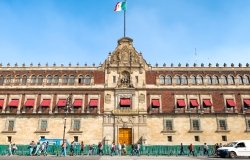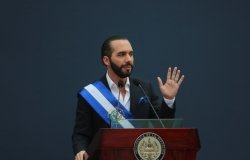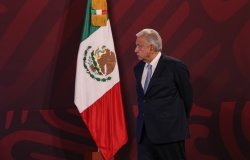Smart Take | Mexico Responds to Ecuador's Raid on Its Embassy
Diplomatic relations between Mexico and Ecuador have been severely damaged after Ecuadorian police forces stormed the Mexican Embassy in Quito to arrest Former Vice President Jorge Glas. Lila Abed, Acting Director of the Wilson Center's Mexico Institute, provides insight into the impact of the raid on relations between the two countries and comments on why Ecuador President Daniel Noboa authorized the action. She also describes Mexico's ongoing response and implications for regional stability and cooperation.
Video Transcript
Mexico Responds to Ecuador's Raid on Its Embassy
This transcript has been lightly edited for clarity.
So it's important to note that Ecuador's president, Daniela Noboa, has argued that asylum protection did not apply to Jorge Glas, given that he faces, charges for corruption and bribery that occurred under former President of Ecuador Correa, Rafael Correa.
That said, Noboa also are facing elections next year. And this was a political calculation that he believes will favor his opportunity, his chances of being elected again as Ecuador's president. Mexico, soon after claim that these actions violated international law, in particular the Convention of Caracas from 1954 on diplomatic relations and diplomatic asylum, as well as the Vienna Convention of 1961, particularly article 22 of the latter, which states that any premises of a diplomatic mission cannot be violated by the host state.
Mexico has also then, filed a complaint before the International Court of Justice asking for reparations for the damages, and has also asked for guarantees that Ecuador will never repeat such actions. It has also recently asked the United Nations to suspend Ecuador's membership in that organization until it issues a public apology for its actions. This incident has actually also been discussed in the Organization of American States.
I want to reiterate that what Ecuador did was a clear violation of international norms and principles, that breaking ties between nations like Ecuador and Mexico also debilitate the possibility of cooperation on key areas, such as combating organized crime and dealing with migration. Two phenomenons that, you know, are really becoming an issue, not only for Mexico and Ecuador, but have become a more regional, issue. And the fact that they can no longer cooperate on both and other areas will just debilitate the ability of the Western Hemisphere to strengthen its ties and to better cooperate on issues that are important to all states.
Guest

Hosted By

Mexico Institute
The Mexico Institute seeks to improve understanding, communication, and cooperation between Mexico and the United States by promoting original research, encouraging public discussion, and proposing policy options for enhancing the bilateral relationship. A binational Advisory Board, chaired by Luis Téllez and Earl Anthony Wayne, oversees the work of the Mexico Institute. Read more









